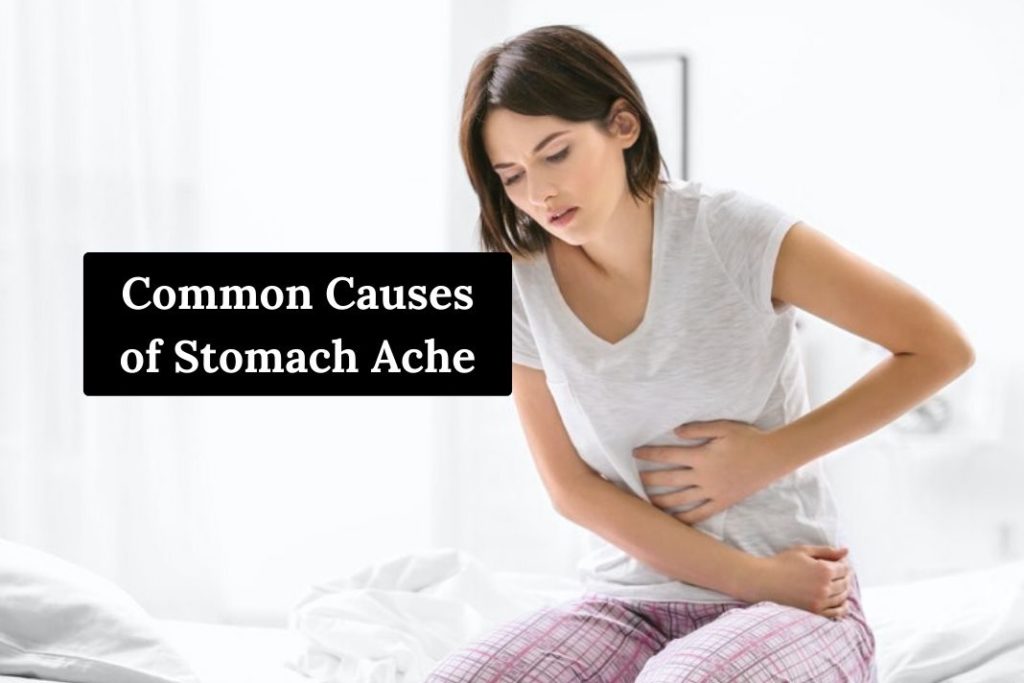We will not tire of repeating that this information is provided for information. The information and advice that we provide here are intended to guide you about the causes and diagnostic possibilities of your symptoms, but they are not intended to constitute a diagnosis or, of course, to substitute professional medical assistance. This comes to mind because whether your stomach pain is due to indigestion or caused by something more serious, it should never be ignored and, if it persists, it will always require a visit to the doctor.
There are multiple structures, organs, and systems housed in the abdomen: digestive system, urinary system, female genital system, blood vessels, lymph nodes, etc. And doctors often have to slowly analyze symptoms and signs, perform a good physical examination, and often resort to complementary diagnostic tests to try to reach an accurate diagnosis.
However, the most common is always the most common, and most of the time they are trivial or temporary problems of the digestive system or other devices that show indicative symptoms or signs. In any case, the causes that can cause abdominal pain must be carefully addressed, as it can sometimes be potentially serious.
We review six of the most common abdominal problems below.
Table of Contents
Pain in the upper abdomen
The pain in this area usually has to do with heartburn problems. In such a case, antacids may help relieve pain.
If the pain persists, it could be related to bigger problems in the stomach, heart, lungs, or other organs. If antacids don’t relieve it, or if after two or three days it doesn’t go away, see a doctor.
Bloating and gas, plus stomach pain
Stomach bloating is a very frequent plus when talking about stomach pain, and it could have to do with diet: something you have eaten can cause it, mainly dishes rich in fats. Avoid them, and see if the swelling and pain subside.
If the problem persists and you have not found the culprit, it may be due to a disorder such as irritable bowel syndrome. It is best if you go to the doctor who could eventually suggest a regimen – like the FODMAP diet – to investigate the cause.
Pain after eating in the upper abdomen and chest
As you just had dinner, does that feeling of discomfort and pain appear in the upper abdomen and chest? It has happened to all of us and it could be, with all possibilities, the speed at which you have eaten. If this is the case, and also the dishes were heavy and fatty (especially if you are not used to that type of food) it can be solved with over-the-counter medications – without a prescription – that the pharmacist will know how to offer you. Talk to him.
This sensation, although quite common, maybe due to food intolerance or, again, irritable bowel syndrome. It is interesting to write down daily what you eat and how you felt after eating, so that, in your inevitable consultation with the doctor, you can see which foods or groups of foods cause the symptom.
Pain in the lower abdomen
It is extremely common and, in women, it is usually related to the menstrual cycle. If you have particularly severe menstrual pain, in addition to pain relievers (talk to your pharmacist) it may help to take a leisurely walk or swim for a while. Also try a hot water bottle, that effective remedy from our grandmothers.
That said, you should immediately control that pain, especially if it is intense or appears quickly. It could be appendicitis, so go to the doctor now. The pain usually appears in the middle part of the abdomen and initially, it can come and go, and in a few hours, it can move to the lower right part of the abdomen and become intense and constant.
Stitches or abdominal cramps
Again, abdominal cramps are related to the menstrual cycle, more than anything else.
If you see that your pain is not related to the menstrual cycle, it is best for someone: that is, the doctor, to rule out problems such as pelvic inflammatory disease, fibroids, endometriosis or adenomyosis. Normally all of them require medical treatment, so it is better to go to the doctor sooner than later.
Gut pain, more bloating and diarrhea
Abdominal pain that appears with gas, bloating, and diarrhea can be accompanied by itching and skin irritations. This could be a symptom of some intolerance. There are no specific tests for these intolerances, and the trial-error method is used. It is important to keep a detailed diary of everything you eat if this is your case.
If the discomfort is very frequent, it is worth taking an in-depth look at everything you have eaten or drunk regularly. Suppress coffee and tea and dramatically reduce alcohol. Stop smoking, lose weight (if you have excess weight), do not skip meals, try to stay upright during the day and, at night, try to keep your head higher than the rest of the body … all this can help. You should also minimize very spicy or very fatty dishes.
